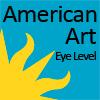
Alex Minoff, The Caribbean, and Kokayi
In the words of How I Met your Mother's Barney Stinson, our next Luce Unplugged is going to be, "legen . . . wait for it . . . dary." Legendary. Pop culture references aside, this Friday's Luce Unplugged Community Showcase features great local musicians, Alex Minoff, The Caribbean, and Kokayi, as well as a free beer tasting by local brewery DC Brau (get here early, the tasting is from 6 to 7 p.m.). We have also partnered with the Washington City Paper, which has been an invaluable music resource for us as well as the community at large. Managing editor Jonathan L. Fischer helped put Friday's Luce Unplugged together and we had the opportunity to pick his brain about the D.C.'s music scene, cool venues, and what he sees as the future for local music.
Eye Level: You mentioned once that you wanted the Washington City Paper to be the D.C.'s resource for local music—how are you doing that?
Jonathan Fischer: In all fairness, I should probably defer to City Paper's new (!) arts editor, Ally Schweitzer, on this one, since our coverage of music in D.C. is now her show. But in the two and a half years that the job was mine, my guiding principle was pretty simple: We should identify the scenes—there is no one D.C. scene—that are important to the cultural life of the city, as well as what simply think is awesome. And then we write dispassionately about music news that really matters and very passionately about the music we feel is great.
On the nuts-and-bolts level, that means blogging about cool new music, highlighting up-and-coming bands in our One Track Mind column and in our City Lights picks, and reviewing local records that really stand out. Most importantly, it means frequently stepping back from the usual rhythms of gigs and releases to think about the larger issues of culture and business of music in D.C.: For example, our feature pieces about Moombahton, the D.C.-invented EDM subgenre; the interaction between D.C. bands and larger music-industry trends; our pieces that looked at the history of Fort Reno and the closing of DIY spaces like Subterranean A and Gold Leaf Studios; our essays about hardcore reunions and the culture of kids punk rock; pieces about how music interacts with issues of politics and race and power in the city (see our coverage of the death of Chuck Brown); etc. etc. etc. (We also don't shy from occasionally throwing stones—see Ally Schweitzer's essay about Thievery Corporation from 2011.)
Also, the time City Paper sent me to cover a garage-rock cruise was pretty cool.
At every level—blog post, short feature, cover story—it means telling good stories, basically.
EL: What do you think people should know about D.C.'s music scene?
JF: That there's an interesting paradox between the growth a lot of scenes in the city have experienced in recent years—see especially hip-hop and jazz and EDM—and the level of supportiveness they've retained from the days in which they were a lot smaller. I guess that's the D.C. punk-rock spirit we hear so much about...
EL: You wrote about Luce Unplugged in 2011 and mentioned other museums that are hosting concerts. What do you think is the connection between museums and music?
JF: Where to start? Well, I love seeing headphone-wearing musicians playing with audio on their laptops in museums—definitely something I've spotted around town.
Also, museums in D.C. (American Art, Phillips, Hirshhorn, Corcoran, Artisphere) have done some important heavy lifting in D.C. in terms of offering interesting performance opportunities for local performers. Clubs are great, but I want to see musicians in other settings, too.
I should say that there's a somewhat troubling, paradoxical aspect to the museumification of popular music (and especially subcultural music) that Simon Reynolds gets fairly eloquently at, but overall, I can't get too worked up over it. In D.C., the more places folks can play, the better.
EL: Other than museums, what other alternative music venues would you recommend?
JF: So many great DIY spaces that aren't too hard to track down via Googling. And venues that fall between club and art gallery, like The Dunes and Montserrat House. And I suspect we'll see a lot more creative placemaking involving music in the next few years—hopefully in the Dupont Underground, to start.
EL: What's in store for D.C. music?
JF: Depends on the scene. I didn't really mention indie rock above, so I should say that the last few years have been relatively fertile, and there are new, interesting labels popping up all the time. Very stoked in particular by some of the releases from the labels Windian and Cricket Cemetery.
Luce Unplugged is from 6 to 8:30 p.m. on Friday, September 14. We hope to see you at the event!

